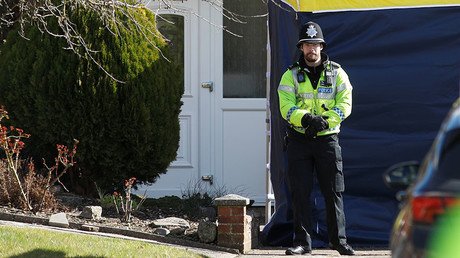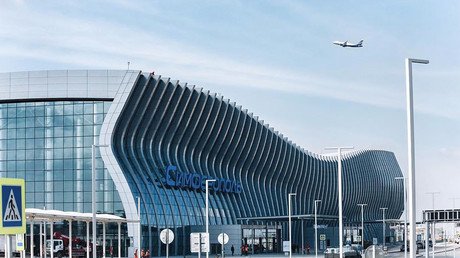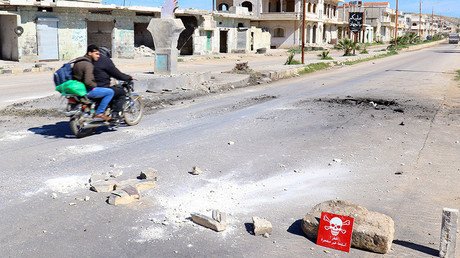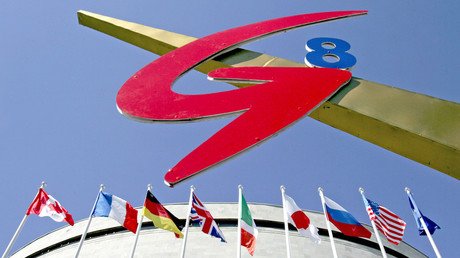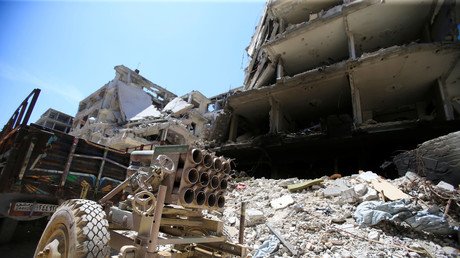Rounding on Russia: G7 foreign ministers support UK's presumption of Russian guilt in Skripal case
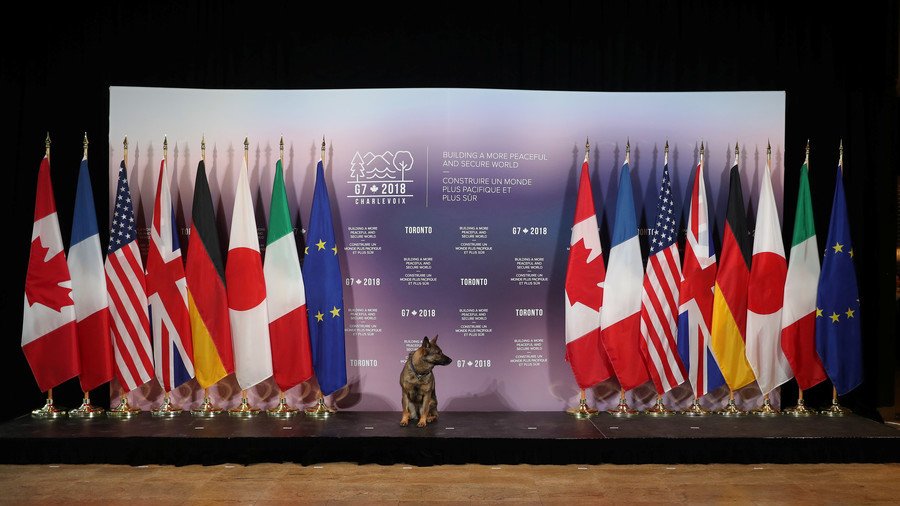
G7 foreign ministers have sided with the UK in assigning blame for the Salisbury poisoning of Sergei and Yulia Skripal to Russia. The ministers "share and agree" on the assessment that Moscow was "highly likely" behind the attack.
"We share, and agree with, the UK's assessment that it is highly likely that the Russian Federation was responsible for the attack, and that there is no plausible alternative explanation," the foreign ministers of Canada, France, Germany, Italy, Japan, the US, the UK itself as well as the High Representative of the European Union, declared in a joint statement issued in the wake of their meeting in Toronto on Monday.
They doubled down on the allegations voiced by London that former spy Sergei Skripal and his daughter Yulia were poisoned with a military-grade nerve agent "of a type developed by Russia," accusing it of running a "Novichok program" that it allegedly failed to declare, in breach of the Chemical Weapons Convention (CWC).
Russia has refuted all the accusations, insisting that it had destroyed its last chemical weapons in 2017, while the US was long overdue, repeatedly missing its deadline to reciprocate. In the latest prank by the famous Russian duo Vovan and Lexus, a man they claimed was Organization for the Prohibition of Chemical Weapons Director-General Ahmet Uzumcu, admitted that the supposed Novichok could have essentially been produced by any country, including the US.
Russia became one of the stars of the lengthy G7 communique, getting chastised in connection with the civil conflict in Ukraine, Crimea's reunification and what the West sees as Moscow's efforts to disrupt established democracies with its meddling.
On the topic of Crimea, which reunited with Russia in 2014 following a popular referendum, they blamed Moscow for alleged "violations and abuses committed against its population by Russia," claiming that, since Russia took over the reins in the peninsula, the human rights situation there has "degraded."
Meanwhile, support for the decision among Russians has been overwhelming and has remained steady for years. According to a March poll by the Levada Center, 86 percent stand behind the move, roughly the same number as four years ago. Seventy percent believe that Russia's reunification with Crimea was beneficial to the country.
Representatives of G7 also said Russia was responsible for the lingering conflict in eastern Ukraine, that was sparked by a bloody coup that ousted the government of Viktor Yanukovich and polarized the country to the point of an all-out civil war. Hinting at the possibility of new punitive action against Moscow, the ministers stated that economic sanctions against Russia could be "rolled back only if Russia fulfills its commitments" under the Minsk Agreements. "But we also stand ready to take further restrictive measures should Russia's actions so require," the statement read, without elaborating.
The EU and the US have slapped Russia with several rounds of sanctions, the last one imposed by Washington in early April, targeting 24 high-profile businessmen as well as 14 companies. The US said Moscow was being punished for "a range of malign activity around the globe," namely its reunification with Crimea, involvement in the Ukrainian conflict and support for the government of Syria.
In line with the ‘blame Russia’ narrative, the ministers went on to reiterate allegations of Moscow's "interference in countries' democratic systems." Calling Russia's behavior "irresponsible and destabilizing," they urged Moscow to "live up to its international obligations" as a United Nations Security Council member. However, they noted that there are still areas where G7 countries and Russia need to work together.
"Notwithstanding, we will continue to engage with Russia on addressing regional crises and global challenges. We will continue to bolster our capabilities to address hybrid threats, including in the areas of cybersecurity, strategic communications and counter-intelligence," the communique reads.
As far as the US-led missile strikes on Syria are concerned, the statement completely mirrors the justification of the military action provided by the trio of western allies at the time of the attack.
Laying the blame for the alleged chemical incident in Douma on April 7 on the Syrian government, the G7 foreign ministers argue that what the US, UK and France did was to "alleviate the extreme suffering of the Syrian people" with a "limited, proportionate and necessary" response. The move, they claim, was "taken only after exhausting every possible diplomatic option to uphold the international norm" against chemical weapons use. Again, they lambasted Russia for vetoing the US-sponsored resolution that would have resurrected the Joint Investigative Mechanism (JIM) into chemical incidents on Syria's soil. The JIM, whose mandate expired last year, was criticized by Moscow as inherently flawed, since its investigators issued a damning report based on unverified witness accounts and third-party analysis, without ever going to the site of the incident in Khan Shaykhun just over a year ago. The discrepancies in the report and lack of integrity of the investigation were repeatedly pointed out by Russia, which called it "simply amateurish" and "logically inconsistent."
